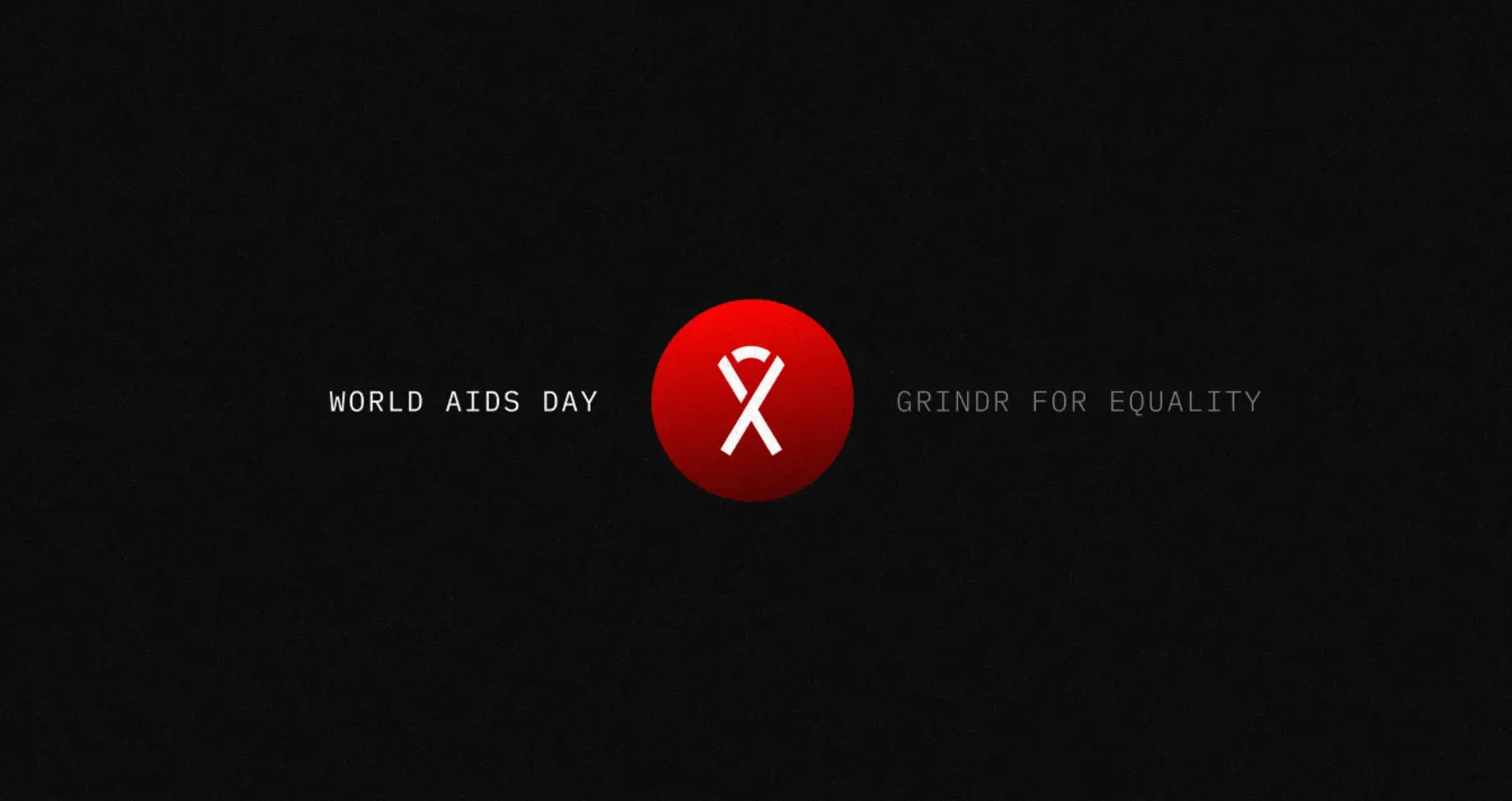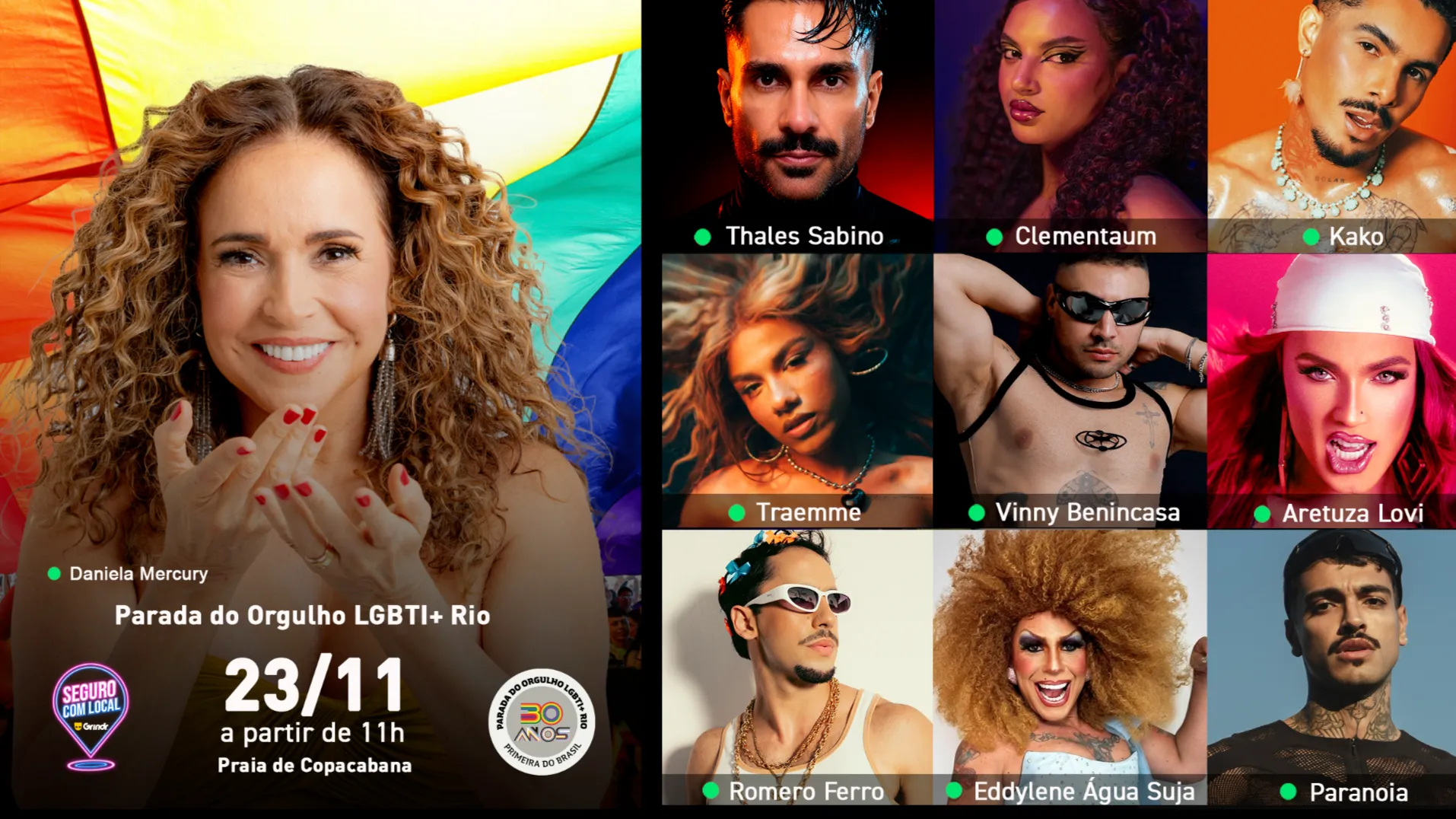Gender-Neutral Terms for You and Your Buddies

The human brain is the most complex computing system in the known universe, and 117 billion humans have strutted this catwalk that we call Earth since the day we put the homo in Homo sapiens. We invented everything from spaceships to mascara that doesn’t run (even when you’re crying so, so much).
And we’re just supposed to believe there are only two possible ways for all of that magnificent complexity to manifest in the form of gender? Two!? Two genders?? You mean the concept that we literally made up? Sounds fake.
Nonbinary is an umbrella term for anyone who doesn’t strictly identify as either male or female, which, just like the binary, is a very simple way to boil down a super complex grouping of identities. More people identify outside the confines of the gender binary every day, so learning about gender-neutral terms and pronouns will keep you in the know while also creating a safe and open environment for all your gender-nonconforming besties.
Perhaps you’re crushing on an enigmatic enby (as in NB — as in nonbinary person) with an eclectic wardrobe and a slick haircut. Or maybe you’re curious why your boss now starts every work meeting with a well-intentioned stumble like, “Good morning, guys…I mean, people…folks…Greetings, workforce.”
Or maybe you’re just looking to learn some more inclusive language. Regardless, we’ve got you covered with some simple grammatical alternatives to the gendered language of old.
LET’S. GET. EDUCATED.
Fun fact: English speakers have used the singular they and them to refer to anyone of undefined gender since at least the year 1375. On the other side of that historical coin, the English language is rife with binary gender bias and inherent sexism.
Just think about it: How many job titles have “man” built right in? Fireman, policeman, handyman, longshoreman. Hold on — this is turning into the cast of an epic porn…
Sorry, where were we? Right — the sexist, male-dominant foundations of the English language. Hell, some even learn in school that “female” and “woman” are derivatives of “male” and “man,” respectively (although that’s not entirely true), and none of that leaves much space for gender neutrality.
Many people lamenting that “It’s just not correct” simply don’t realize they’re already doing it. If you pick up a wad of cash off the ground, you say, “Hmm, someone dropped their wad of cash.”
Then you look both ways and slip it into your pocket before descending into a sordid tale of hijinks and chaos because it turns out that wad of cash belonged to the mafia. In all the commotion, you never even noticed you used the singular “their.”
Neutralize your language with these genderless words
So, anyway, about those gender-neutral terms. Here’s a little “this instead of that” action for your reference:
General, everyday use
- They/them: As a singular gender-neutral pronoun instead of he/him or she/her. (If someone argues that “they” can only be plural, tell them, “Okay, fine, it’s plural — as in, we contain multitudes, and the English language is not powerful enough to contain our unfathomable depths within a small selection of adjectives and nouns. Bitch.”)
- Person: Instead of man or woman.
- Folks: For referring to a group of people instead of guys or gals.
- Y’all: Never forget who popularized the most succinct gender-inclusive colloquialism in the whole English language: the binary-busting transgender defender and bastion of progress, the state of checks notes Texas? Y’all means all!
- Gendy nooch: Just kidding, this one’s a meme. But here’s hoping you think of us the next time you and your gendy nooch besties take a break from your menty B’s to act a little delulu, as a treat.
In the family
- Parent: If you’re searching for a gender-neutral term for your parent, it’s sitting right in front of you.
- Child: Instead of son or daughter.
- Kiddo: Instead of girl or boy.
- Sibling: Instead of brother or sister. And sib instead of bro or sis.
- Nibling: Instead of niece or nephew (not to mention arguably the most endearing term on this list).
- Pibling: A gender-neutral term for your parent’s sibling instead of aunt or uncle. Auncle is another fun portmanteau that might resonate with your parents’ more genderqueer and gender-expansive siblings.
Greetings and honorifics
- Mx. (pronounced ‘mix’): Instead of Mr., Mrs., Miss, or Ms.
- Your Highness: A great gender-neutral royalty term to replace “King” or “Queen” when you’re telling someone to pop off.
- Theydies and gentlethems: Okay, fine — this one’s another meme. It’s impressive that the gender-neutral phrase still manages to split your audience into masculine and feminine groups. Instead, try “esteemed guests.”
{{video-inline-cta}}
Professions
- Flight attendant: Instead of steward or stewardess.
- Salesperson or sales representative: Instead of salesman or saleswoman.
- Server: Instead of waiter, waitress, or “Hey you! snap, snap” if you’re out with your for bottomless mimosas.
- Firefighter: Instead of fireman or firewoman.
- Member of Congress: Instead of Congressman or Congresswoman.
- Councilperson: Instead of councilman or councilwoman.
On the job
- Workforce: Instead of manpower. Like employees or workers, but it sounds cooler.
- Work bestie: Instead of work wife or work husband (which were probably a bit unprofessional in the first place).
Dating and love life
- Partner or significant other: Instead of girlfriend or boyfriend.
- Spouse: Instead of husband or wife.
- Babe, boo, or honey bunny snookum bottom. Pet name alternatives for girlfriend or boyfriend, obviously.
Getting with the program
In a perfect world, we can all strive to learn these terms and have conversations early to avoid accidentally offending anyone. But there’s one common misgendering mishap that’s hard to prepare for: when you’re in a group setting with a trans or nonbinary person, and someone else misgenders them before you’ve learned how they would feel most supported in that scenario.
If that happens, it’s probably best to minimize immediate confrontation or anything that might make your gender-nonconforming friend feel singled out or othered. Try to model good behavior by simply using their correct pronouns for the rest of the conversation.
Then, be sure to privately follow up with your friend afterward to let them know you want to help but aren’t sure what to do, and ask how you can best support them in the future. Humility and curiosity beat shame and judgment every time.
Depending on the person, they might want you to do one of the following things to help out the next time someone misgenders them:
- Model correct behavior by using everyone’s chosen names and pronouns.
- Engage in constructive confrontation in the moment if someone repeatedly uses misgendering language (and you know your friend is okay with a little spice).
- Stay quiet if they don’t feel safe or comfortable with the confrontation. (We recommend privately letting that person know in your own way that you support them by casually, clearly, and consistently using gender-neutral language when you’re alone with them).
More helpful tips and food for thought
We’re already living in a gender-inclusive future, babes! The more we practice using new or unfamiliar language, the easier it gets. The easier it gets, the more widespread it becomes, and that makes the world so much more welcoming for everyone!
By the way, we recommend offering your pronouns and asking everyone in a group rather than only asking when you think someone looks gender-nonconforming. This helps to both normalize the practice and make your nonbinary friends feel included instead of singled out.
Even saying “preferred” when asking someone’s pronouns adds to the misconception that our identities are a suggestion or a choice. The truth is, the only choice a trans or nonbinary person makes is to live authentically. Sharing their pronouns and name with you allows you a glimpse at their fabulous, vibrant truth.
It takes some real guts to walk proudly out into this world at this moment in history as a gender-nonconforming person, so honor their bravery by simply learning their pronouns and using them diligently and with respect.
More important things to keep in mind:
- You can’t tell a person’s gender identity just by looking at them. Feminine, masculine, and/or androgynous gender expression does not clearly indicate a specific gender identity.
- There is no one way to “look” cisgender, transgender, or nonbinary, so check assumptions at the door.
- Sex, gender identity, and sexuality are intersecting parts of everyone’s identity, but they are not the same, and everyone experiences them in their own ways.
- If you realize you’ve misgendered someone, all it takes is a quick, casual correction in the flow of your sentence. No need to make it a whole thing. Showing care through effort is everything.
- Someone’s perception of grammatical correctness is not more important than the comfort and safety of people who boldly walk through this world as their authentic selves in spite of it all.
Get those gender juices flowing
Here’s a fun anecdote: Many languages and cultures are steeped in binary gendered language, but that didn’t stop Sweden from officially adding the nonbinary pronoun “hen” to the Swedish language in 2015. At the end of the day, grammar is just words, and words are all made up. By us!
And we can make up more words or change them to better suit our needs as we see fit. So set your inner linguist aside and teach that old dog some new tricks because it makes for a better, safer, and more inclusive world.
Then, hop on Grindr and show off what you learned. Download the Grindr app now and get started!










.gif)
.webp)


.webp)
.webp)










